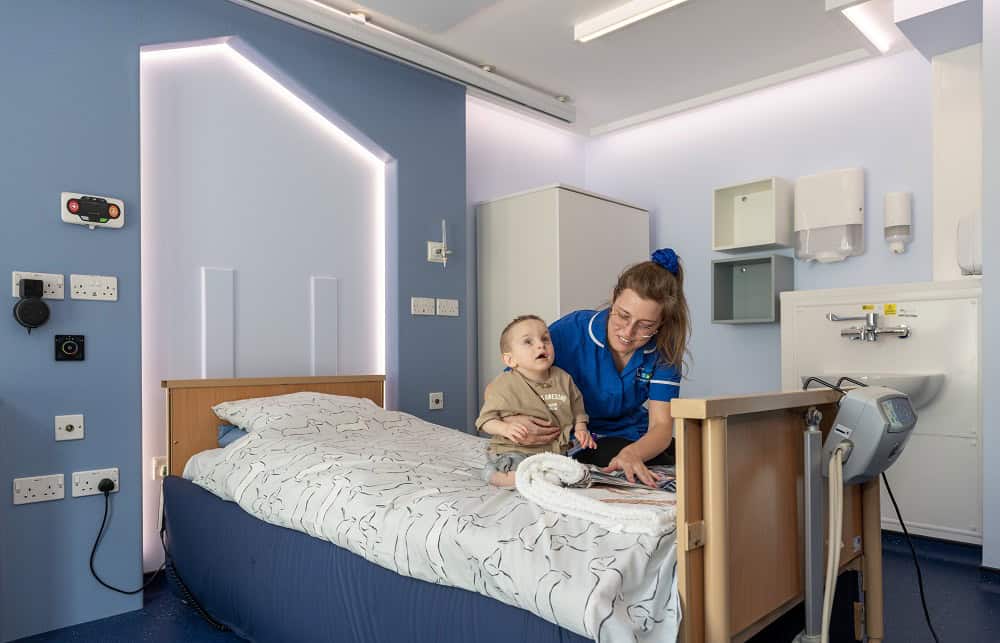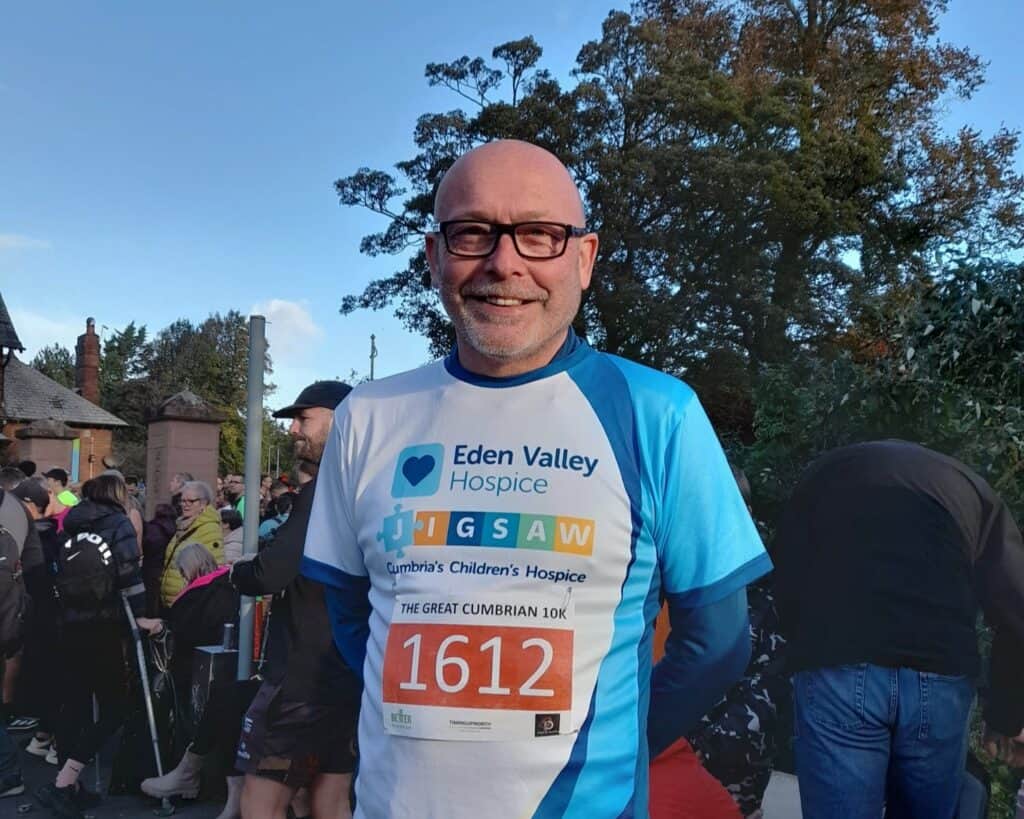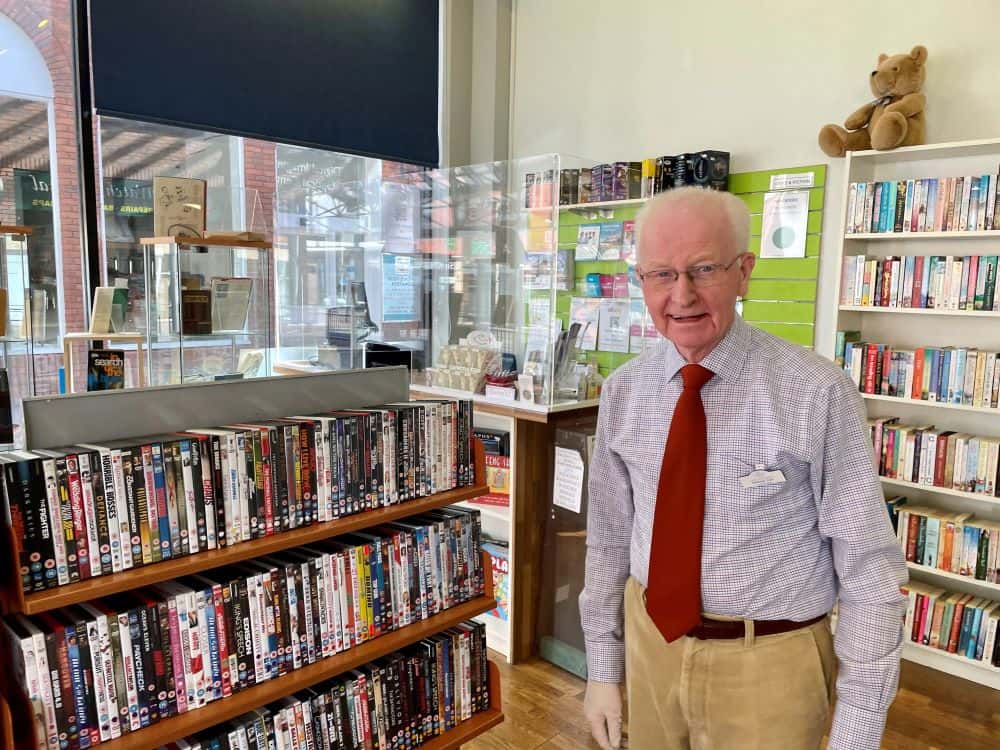Gibson Greene isn’t your average three-year-old. He is only one of 100 people worldwide with a diagnosis of a rare genetic condition called trichothiodystrophy, or TTD for short.
TTD ages children internally, and as a dystrophy, he will have a much shorter life span than most others.
Mum Sarah explains: “Gibson will hit a point where his development stops, and degeneration begins. To try to maintain a healthy Gibson we currently have 16 specialists in Scotland from Glasgow to Annan that help care for him and a further 10 specialists at the rare disease centre at Guys and St Thomas Hospital in London.”
The condition is complex and has many side effects. Gibson was born with double congenital cataracts, for which he has already had three eye surgeries to remove the lenses and is visually impaired, he has problem with his teeth and the enamel not forming properly and issues with his hair, which is sparse, brittle and will leave bald patches.
He was born weighing just two pounds and three ounces and has struggled to gain weight ever since. Gibson, who is from Gretna in Dumfriesshire, also has global development delay which means he currently cannot speak other than a few words.
Additionally, Gibson has XP skin disorder, meaning that at birth he had an extra layer of skin resulting in certain limbs being held in unusual positions. The lasting effects of trying to correct this mean he has a much higher sensitivity to UVB rays and therefore he will burn in the sun easier and is at a much higher risk of skin cancer in the future.
Jigsaw comes into Gibson’s life
Jigsaw, Cumbria’s Children’s Hospice supports Gibson’s care and has become a favourite place of his. However, mum Sarah admits she was skeptical at first about bringing him to the hospice.
“When Jigsaw was first suggested to us a family, my instant reaction was no, not a chance,” she said.
“My only experience with a hospice was somewhere people went to die. I could only imagine a building that felt sad the second you walked through the doors and the nurses to be cold and unwelcoming.”
However, a referral was made by the specialist team in London who’d been supporting Gibson and his family, and Sarah reluctantly agreed to give it a go, expecting to attend once and then make her excuses.
“I’m happy to say, however, that I have never been more wrong about anything my whole life. Jigsaw is one of our favourite places to go and the staff feel like family.
“The second you walk in the door you are greeted with a huge smile, a cuddle for Gibson and the offer of a brew. The facility itself is colourful and modern and you can hear laughter floating down the corridor.”
And now, the only children’s hospice in Cumbria has become an extended part of the family.
“Jigsaw to us is a magical place where Gibson’s disability is hung up at the door alongside his coat,” Sarah adds.
“The toys are all adapted so he can play like any other child, the sensory room is soft and safe so he can explore and push the boundaries, because if he does fall he simply bounces. The staff don’t question why he can’t walk or talk, instead they love and accept him as he is and will crawl along with him if that’s what makes him happy.
“The artwork he made at Jigsaw is something we will treasure forever, it comes home at Easter and Mother’s Day etc, just like it would if he was able to attend nursery.
“Amazing as all those things are, though, the most special thing about Jigsaw is the people that work there. No one is ever too busy to spend time with Gibson, whether it’s a cuddle, dancing along to the song Baby Shark or letting him fall asleep.
“When we started going I had a little boy who was shy and wouldn’t go more than an arm’s length from me to now, a boy who will say hello to everyone and crawls off to the sensory room the second his knees touch the floor.
“Jigsaw has become a huge part of our lives that we will be forever grateful for.”
Extra support
The support Jigsaw offers hasn’t just been for Gibson, but for Sarah also in helping her to navigate the future and her son’s condition.
“Although Gibson was the one that the referral was made for, I have also been given help with counselling,” Sarah adds.
“Having someone to talk to about anticipatory grief has been so helpful and made a real difference to my own attitude and outlook.”




